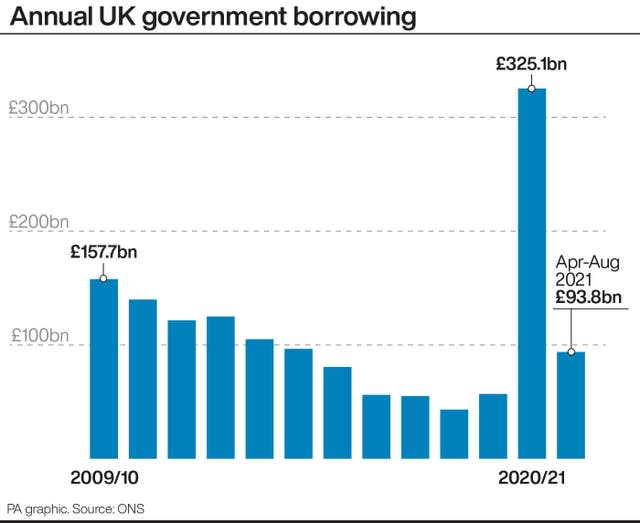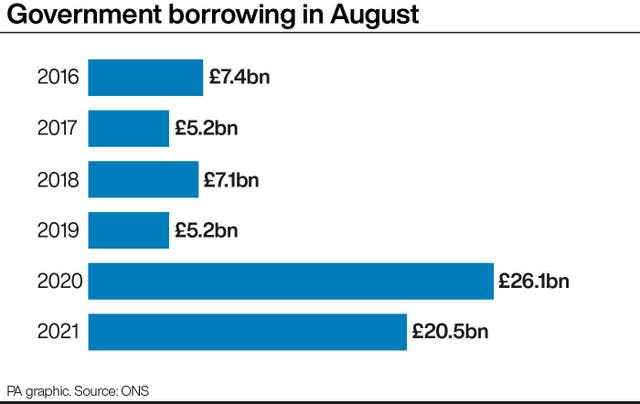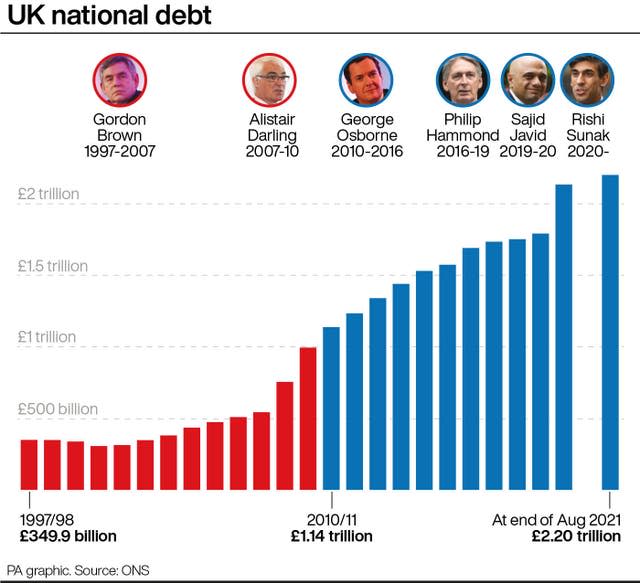Government borrowing in August falls less than expected
The Office for National Statistics (ONS) has predicted around £20.9 billion of Government-backed loans made during the Covid-19 pandemic will never be repaid.
Officials made the prediction for the first time as the ONS revealed Government borrowing fell in August, with the economy rebounding and tax revenues rising.
The ONS said borrowing hit £20.5 billion in August, down from £26 billion a year earlier.
It added that last month’s figure was the second highest August borrowing since records began in 1993.

This was above a consensus of analysts, who had predicted that public sector net borrowing would come in at £15.6 billion for the month.
The data shows borrowing so far this financial year has reached £93.8 billion since the end of March – £88.9 billion less than the same period a year ago.
As a result of these low receipts and high expenditure, the public sector borrowed £325.1 billion between end of March and August.
This is equivalent to 15.5% of gross domestic product (GDP), the highest ratio since the end of the Second World War.
Government debt now stands at £2.2 trillion at the end of August – around 97.6% of GDP – the highest ratio since March 1963.

The figures also reveal that Government spending is starting to fall – dropping £1 billion on August 2020 to £79.6 billion.
This was higher than the amount it received in taxes, which stood at £61.2 billion – £5.3 billion more than August last year – although tax payments were £9.5 billion more than July 2020 as the economy started reopening fully last month.
Officials at the ONS also highlighted that recent high inflation figures are pushing up the interest payments on Government debt.
In August, interest payments were £6.3 billion – £2.9 billion more than the same month a year ago, although this was down on the £8.6 billion record set in June.
The ONS said: “The recent high levels in debt interest payments are largely a result of movements in the retail prices index (RPI) to which index-linked gilts (Government bonds) are pegged.”
The UK’s debt levels have ballooned amid the pandemic as the Government has launched costly support measures to help households and businesses through the crisis.

Isabel Stockton, research economist at the Institute for Fiscal Studies, said: “For the first time these figures include an allowance for the degree to which emergency Government-backed business loans made through the pandemic will never be repaid.
“The Office for National Statistics estimates that non-repayments will total £21 billion, which would be just over a quarter of the £80 billion loaned out.
“This is a big number, but not as big as feared by the Office for Budget Responsibility (OBR), whose Budget 2021 estimate was that £27 billion would not be recouped.
“For the overall health of the public finances, the precise size of last year’s historic spike in borrowing is not all that important.
“What matters more are the strength of the eventual recovery, whether current strength in tax receipts persists into future years and whether the large income tax, corporation tax, and National Insurance tax rises announced since March are actually implemented as planned.”

 Yahoo Sport
Yahoo Sport 





































